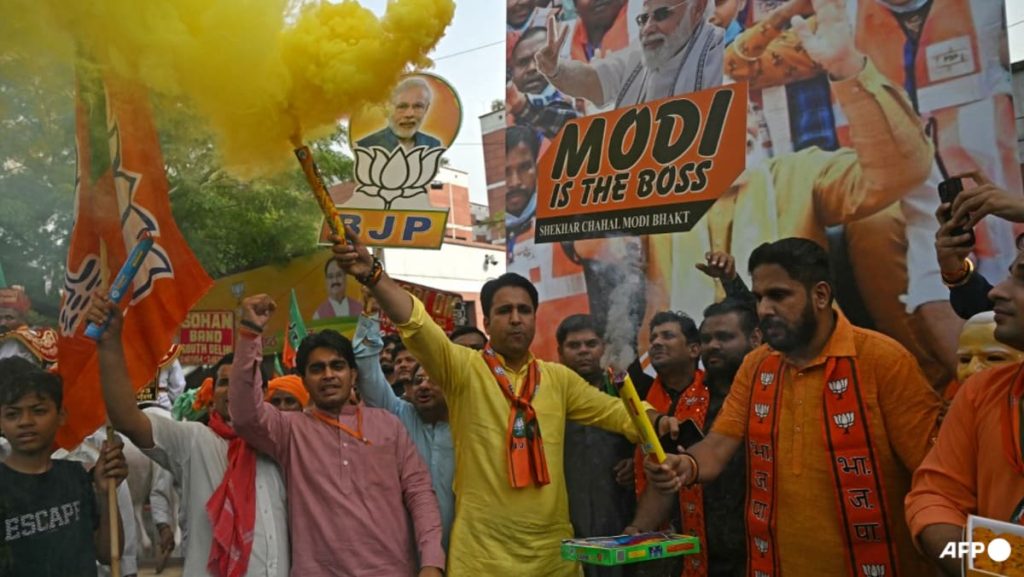his government once again, and he promised to continue working tirelessly to build a stronger and more prosperous India. Modi’s party, the Bharatiya Janata Party (BJP), won a landslide victory in the general elections, securing a majority in the Lok Sabha, the lower house of India’s parliament. This victory is seen as a validation of Modi’s leadership and his government’s policies, including economic reforms and initiatives to improve infrastructure and social welfare.
The BJP’s victory in the elections was largely attributed to Modi’s popularity and his ability to connect with voters across the country. His “Modi wave” swept through many states, with the party winning seats in regions where it had not traditionally been strong. Modi’s campaign focused on national security and economic development, appealing to voters who were eager for change and development. The opposition parties, particularly the Indian National Congress, struggled to compete with Modi’s charisma and the BJP’s well-funded and organized campaign.
Modi’s victory has raised concerns among some observers about the future of India’s democracy, as his government has been accused of undermining democratic institutions and suppressing dissent. Critics point to his government’s crackdown on NGOs and civil society organizations, as well as its use of anti-terrorism laws to silence critics and political opponents. The rise of Hindu nationalism under Modi’s leadership has also raised fears of growing intolerance and discrimination against minority communities, particularly Muslims.
Despite these concerns, Modi’s government has also made significant progress in certain areas, such as infrastructure development, rural electrification, and sanitation. The government’s flagship programs, such as Swachh Bharat Abhiyan and Ayushman Bharat, have been credited with improving the lives of millions of Indians. Modi’s focus on digital initiatives and innovation has also helped to boost India’s technology sector and position the country as a global leader in digital transformation.
In his victory speech, Modi emphasized the need for national unity and called for all Indians to work together to build a stronger and more prosperous India. He highlighted his government’s achievements in the past five years, including economic growth, job creation, and social welfare programs. Modi also promised to continue his government’s efforts to tackle corruption and improve governance, while also addressing pressing issues such as climate change and environmental conservation.
As Modi begins his third term as Prime Minister, he faces a number of challenges, including a slowing economy, rising unemployment, and social unrest. Many Indians are looking to him to deliver on his promises of economic growth and development, while also addressing issues such as income inequality and access to basic services. Modi’s leadership will be closely watched both within India and internationally, as he seeks to solidify his legacy as a transformative leader and continue to shape the future of the world’s largest democracy.















